Disclosure: This article contains affiliate links. We may earn a commission from purchases at no extra cost to you, which helps our travel content.
I've scaled coastlines from California to New Zealand, but nothing prepared me for the raw, untamed beauty of Sudan's Taka Mountains. Rising dramatically from the eastern plains near the Eritrean border, these granite monoliths have remained largely off the adventure travel radar—which is precisely why they captured my imagination. After three years of documenting EV charging infrastructure across continents, I craved something completely different: a digital detox in a place where the only charging stations are the ones you create within yourself. Kassala, with its bustling markets, rich cultural tapestry, and those magnificent rock formations beckoning in the distance, offered exactly that. This isn't your typical adventure destination, and that's exactly the point. Pack your climbing gear, bring your most adventurous friends, and prepare for a journey that will challenge your body, expand your mind, and fundamentally shift how you think about adventure travel in Africa.
Getting to Kassala: The Road Less Traveled
Let me be upfront: reaching Kassala isn't simple, but the journey itself becomes part of the adventure. After flying into Khartoum, I joined three friends from my climbing club for the 400-mile eastward journey. We hired a reliable 4x4 with a local driver—essential for navigating Sudan's variable road conditions.
The drive takes approximately 8-10 hours, crossing diverse landscapes from the Nile Valley to semi-desert plains. While public buses exist, they're unpredictable and uncomfortable for the long haul. If you're traveling with climbing gear (as we were), arranging private transportation is non-negotiable.
One unexpected highlight was stopping at roadside stalls where we sampled incredible traditional fermented foods—a professional curiosity of mine. The rob (fermented milk) and kisra (fermented bread) became our road trip staples, providing both sustenance and a microbial connection to this ancient land.
I tracked our journey using my trusty GPS device, which proved invaluable not just for navigation but for marking potential climbing routes we spotted from the road. Its satellite messaging capabilities gave us peace of mind in areas with zero cell coverage.
As we approached Kassala in the late afternoon, the Taka Mountains emerged dramatically from the landscape—enormous granite domes and spires catching the golden light. No photo can capture that first glimpse, but it immediately validated every hour of the dusty journey.
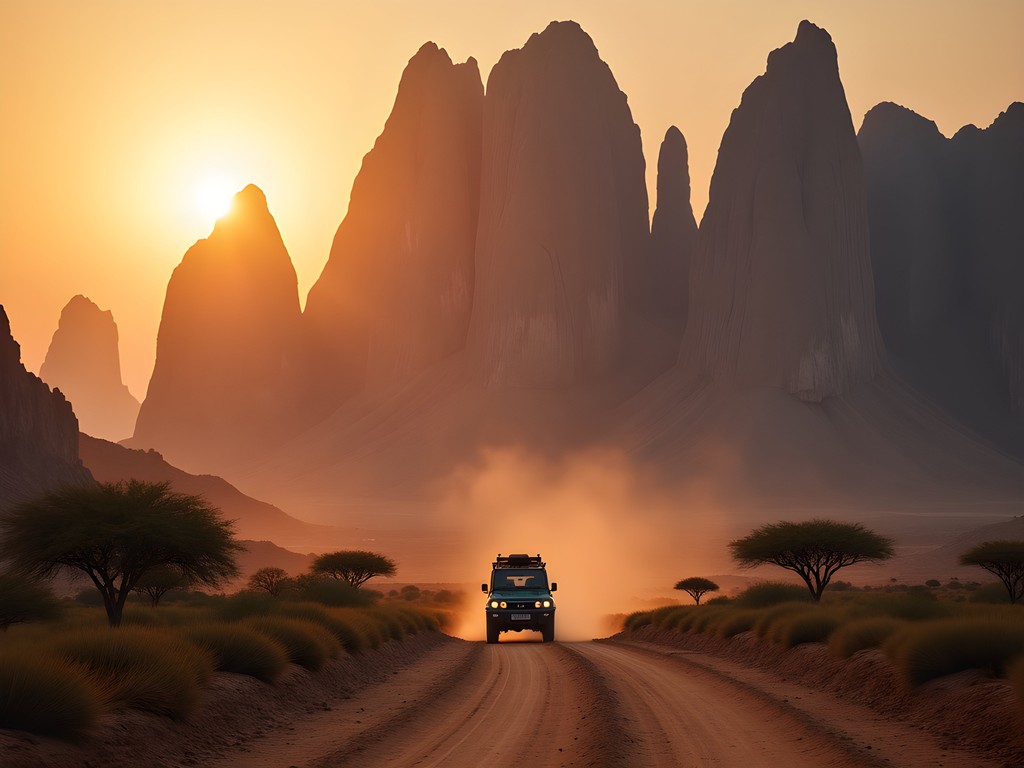
💡 Pro Tips
- Arrange transportation at least a week in advance through your accommodation in Khartoum
- Bring twice as much water as you think you'll need for the journey
- Download offline maps as there's minimal cell service between cities
Base Camp: Where to Stay in Kassala
Kassala isn't exactly flush with luxury accommodations, which is part of its charm and why it remains budget-friendly for adventurers. We split our week between two distinct experiences: first at the modest but clean Hipton Hotel in town, then three nights camping at the base of the mountains.
The Hipton (about $30/night for a double) offers basic rooms with surprisingly reliable air conditioning—a blessing after climbing in 85°F winter temperatures. The real value comes from the owner, Mr. Osman, whose connections helped us arrange everything from guides to fresh market food. Pro tip: request a room on the upper floor for mountain views and better ventilation.
For the camping portion, we worked with local guide Ibrahim through Kassala Outdoor Club, a small collective of climbers and hikers who know the Taka Mountains intimately. For about $15/day per person, they provided transportation to remote climbing sites, cooking equipment, and invaluable knowledge about routes and water sources.
Camping beneath these granite giants was the highlight of our trip. The stars were unlike anything I've experienced—even in remote charging stations along the Pacific coast. We slept in my ultralight backpacking tent, which handled the occasional desert winds beautifully while keeping scorpions and other curious desert dwellers at bay.
While camping, Ibrahim's team introduced us to traditional Beja cooking methods, including underground pit cooking that produced the most tender lamb I've ever tasted, accompanied by fermented sorghum porridge that reminded me of my workshops back home—proof that fermentation truly is the universal language of food preservation.
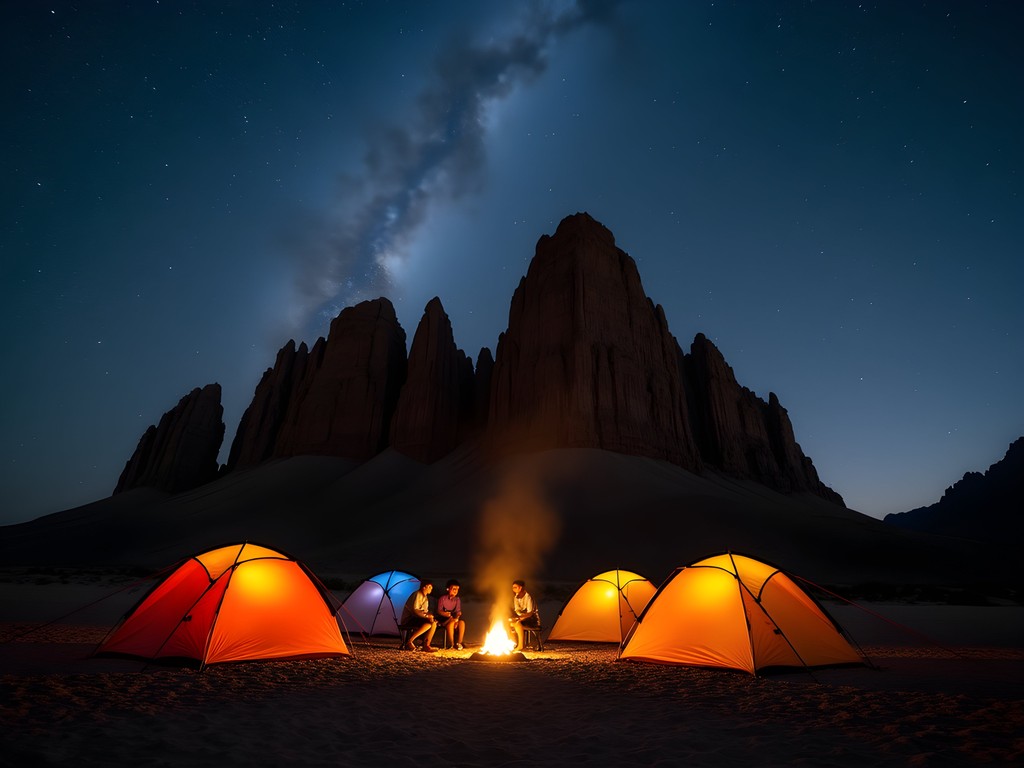
💡 Pro Tips
- Book the Hipton Hotel through WhatsApp rather than unreliable booking sites
- Bring cash (Sudanese pounds) as credit cards aren't widely accepted
- Pack a sleeping bag liner for hotel stays and a full sleeping bag for camping
Rock Climbing: Conquering Untamed Granite
The Taka Mountains offer some of the most underrated climbing in Africa—think Yosemite-quality granite without the crowds or permits. These formations reach heights of up to 2,000 feet, with everything from technical multi-pitch routes to approachable bouldering problems.
Working with Ibrahim and local climber Mahmoud, we focused on three main areas: Jebel Kassala (the most accessible), Jebel Toteil (intermediate, with stunning views), and the remote Jebel Asotriba (challenging, requiring a full day approach). Each area has its own personality and climbing style.
Jebel Kassala offers excellent crack climbing on coarse granite with solid holds. We started with a 5.9 route called 'Beja Way' that follows a natural chimney system up about 400 feet. The rock quality surprised me—minimal loose material and fantastic friction even in warm conditions.
For more experienced climbers, Jebel Toteil presents technical face climbing with sparse protection. My climbing partner Dani led an intense 5.11b route named 'Camel Rider' that required delicate balance and complete trust in tiny crimps. I followed, grateful for my climbing shoes with their precise edging capability—absolutely essential on these technical granite faces.
The climbing here remains largely undocumented, which means two things: you'll need solid traditional climbing skills (bring a double rack of cams up to #3), and you'll experience the rare thrill of potentially establishing new routes. We named our contribution 'Electric Ferment'—a nod to my strange career path from EV stations to food fermentation workshops.
Most importantly, climbing here requires cultural sensitivity. Some formations hold religious significance to local Beja people. Always ask Ibrahim which areas are appropriate for climbing—this respect goes a long way in maintaining positive relationships between foreign climbers and the community.
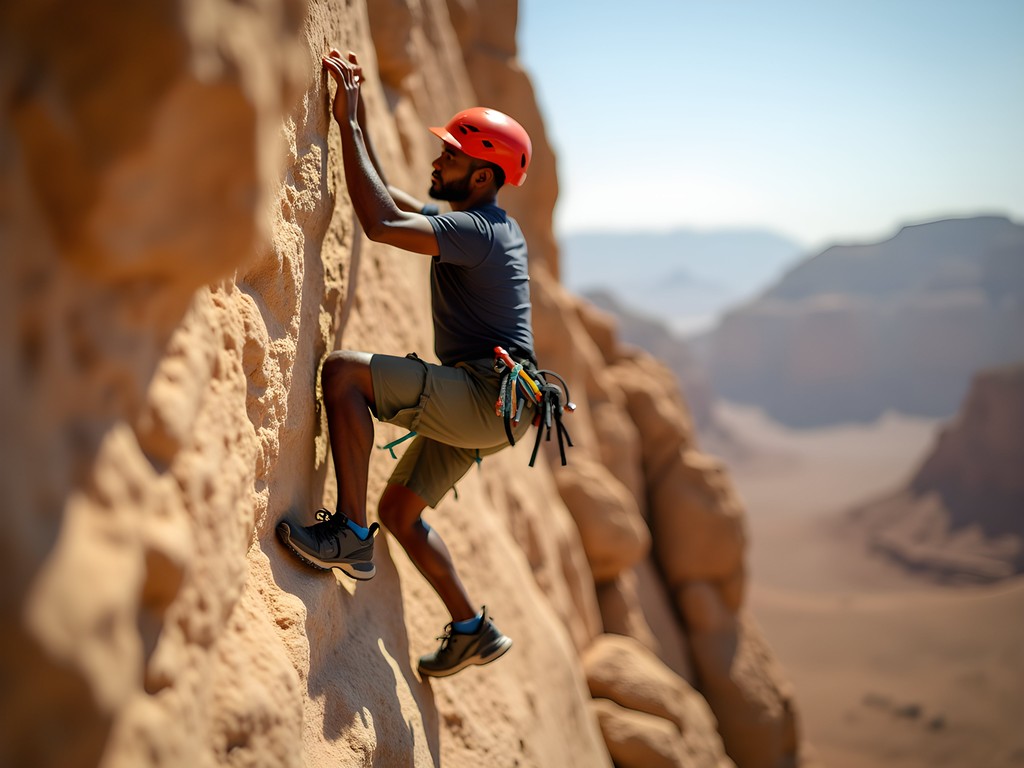
💡 Pro Tips
- Bring comprehensive first aid supplies as medical assistance is hours away
- Start climbing before 7am to avoid the midday heat
- Learn basic Arabic climbing commands to communicate effectively with local guides
Hiking Adventures: Beyond the Vertical
Not every day in the Taka Mountains should be spent clinging to vertical faces. The hiking here offers equally rewarding experiences, particularly in winter (November-February) when temperatures hover around a manageable 75-85°F.
Our favorite trek was the full-day circuit around Jebel Kassala, which begins in dense acacia groves before ascending to a natural rock arch that frames the distant Ethiopian border. The trail isn't marked in any conventional sense—another reason having Ibrahim with us proved invaluable. He navigated using subtle cairns and landscape features invisible to our untrained eyes.
For sunrise enthusiasts (and in the desert, that should be everyone), the two-hour pre-dawn hike to Toteil's eastern ridge rewards you with a spectacle of light across the plains toward Eritrea. I captured this with my compact camera, which handled the challenging light conditions beautifully without weighing down my pack.
The most challenging hike takes you through the 'Valley of Whispers'—a narrow passage between towering rock walls where the wind creates an eerie, almost musical sound. The route requires scrambling over boulder fields and navigating a dry riverbed that transforms into a raging torrent during the brief rainy season.
What makes hiking here special isn't just the landscapes but the encounters. We passed Beja shepherds moving goat herds between sparse grazing areas, using techniques unchanged for centuries. One elderly shepherd invited us to share tea brewed with desert herbs that had a remarkable fermented quality—another reminder of how preservation techniques evolve similarly across cultures.
Water management is critical here. We each carried 3 liters minimum, supplemented by Ibrahim's knowledge of natural springs. I treated all water with purification tablets—even spring water—as medical facilities are limited in Kassala.
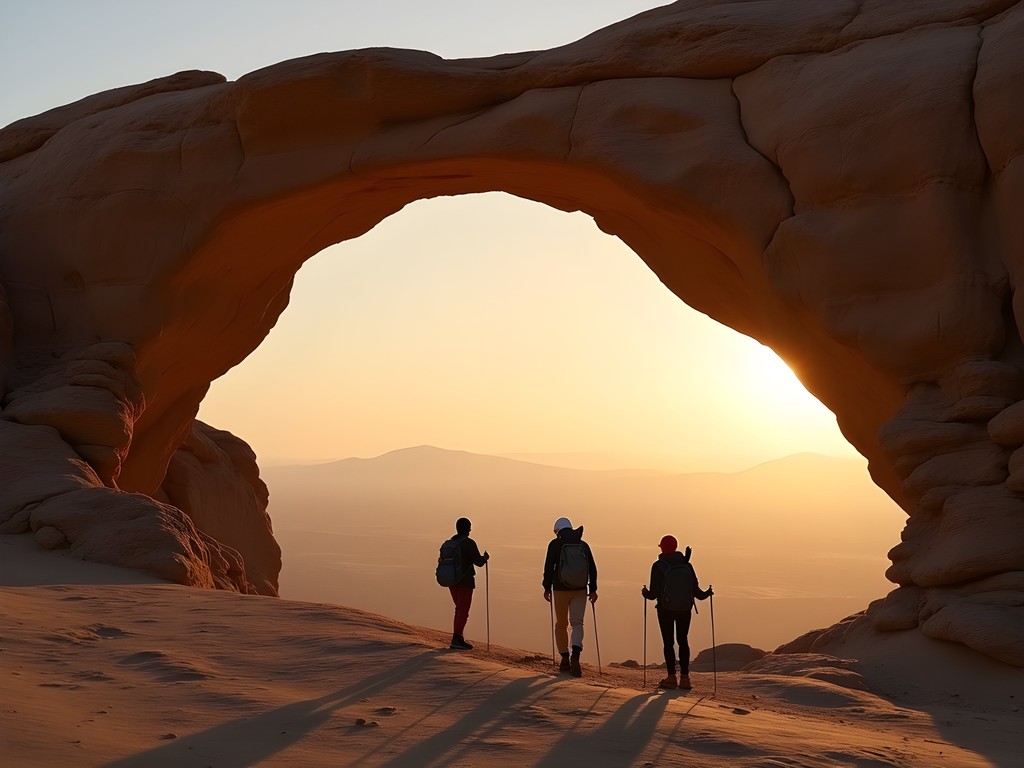
💡 Pro Tips
- Wear long, lightweight pants to protect from thorny acacia and sun exposure
- Start hikes no later than 6am to avoid midday heat
- Bring electrolyte packets to add to water—dehydration happens quickly in the dry climate
Cultural Connections: Kassala's Markets and Communities
Between our mountain adventures, Kassala's vibrant markets and communities offered a different kind of exploration. The central souq is a sensory overload in the best possible way—spice mountains, textile rainbows, and the constant melody of commerce conducted in multiple languages.
As someone obsessed with fermentation, I was drawn to the food sections where women sold homemade kisra (fermented sorghum flatbread) and abreh (a fermented drink made from sorghum and spices). I spent one afternoon learning techniques from a vendor named Fatima, whose family has been fermenting the same starter culture for generations.
Kassala sits at a cultural crossroads where Sudanese, Eritrean and Ethiopian influences blend visibly in the architecture, food, and faces of its people. The Khatmiyya Mosque, with its distinctive Ottoman-influenced design, anchors the old town and welcomes respectful visitors outside prayer times (modest dress essential).
One unexpected highlight was connecting with a small women's cooperative that produces traditional Beja textiles. Their intricate patterns tell stories of mountain landscapes and ancient migration routes. I purchased a handwoven scarf that protected me from both sun and sand during our climbs—practical gear with cultural significance and direct economic support for local artisans.
During our stay, we were fortunate to witness a Beja wedding celebration where traditional sword dances and call-and-response singing continued late into the night. These moments of cultural exchange—far from any tourist infrastructure—represent travel at its most meaningful.
Ibrahim arranged for us to share a meal with his family, where we learned to eat communal-style from large platters using only our right hands (a skill that takes practice!). His mother's fermented goat cheese mixed with chili paste became my new food obsession—I've been unsuccessfully trying to recreate it since returning home.
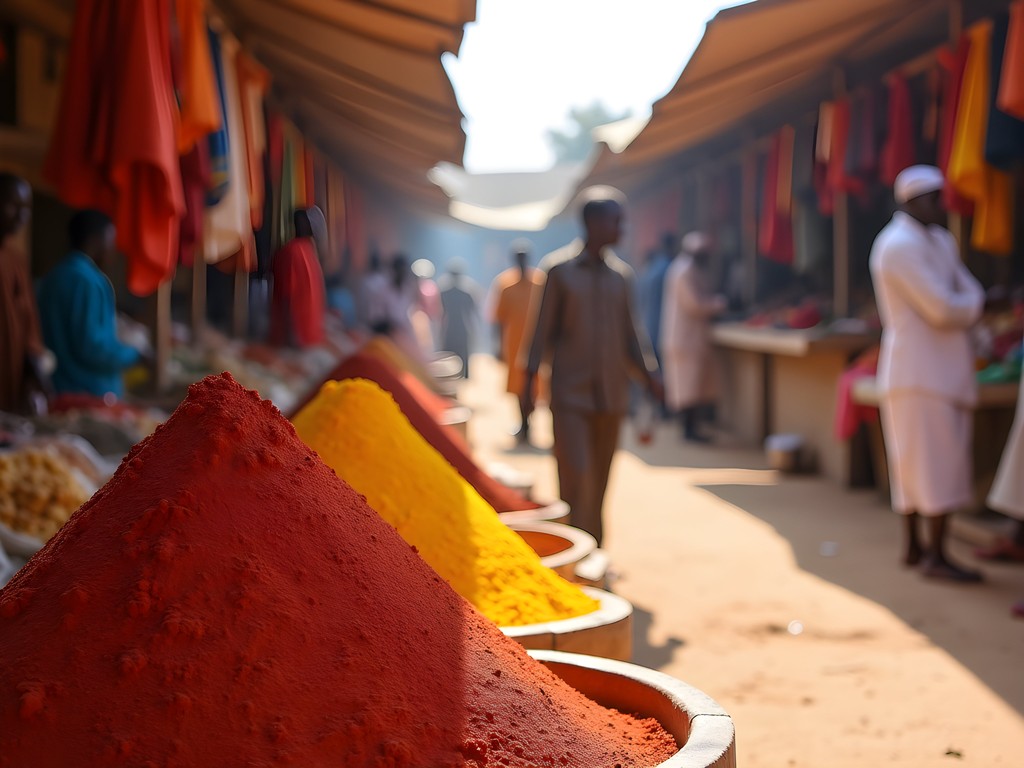
💡 Pro Tips
- Learn basic Arabic greetings—they open doors everywhere in Kassala
- Ask permission before photographing people in the markets
- Bring small denominations of Sudanese pounds for market purchases
Final Thoughts
As our 4x4 pulled away from Kassala, the Taka Mountains receding in the rear-view mirror, I felt that rare traveler's emotion—the simultaneous satisfaction of having truly experienced a place and the longing to return for more. Sudan's political complexities and infrastructure challenges mean the Taka Mountains won't be overrun with adventure tourists anytime soon. That's both a shame for those who will miss its wonders and a blessing for those willing to make the journey. The climbing community here remains small but passionate, the routes largely undocumented, and the cultural experiences profoundly authentic. In a world where so many adventure destinations have been polished smooth by tourism, Kassala's rough edges and raw beauty offer something increasingly rare—a chance to feel like you're genuinely exploring rather than simply following a well-worn path. If you go, tread lightly, climb respectfully, and leave nothing but gratitude behind. The mountains have stood for millennia; our privilege is merely to visit briefly and carry their stories forward.
✨ Key Takeaways
- Sudan's Taka Mountains offer world-class granite climbing without the crowds of more famous destinations
- Working with local guides is essential for both safety and cultural respect in this remote region
- Winter (November-February) provides the ideal balance of manageable temperatures and dry conditions for outdoor adventures
📋 Practical Information
Best Time to Visit
November to February (winter)
Budget Estimate
$500-700 per person for one week (excluding international flights)
Recommended Duration
7-10 days
Difficulty Level
Advanced

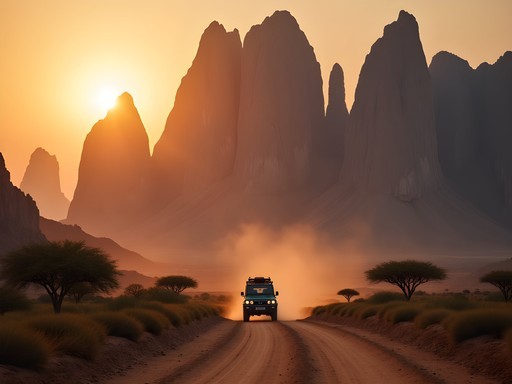
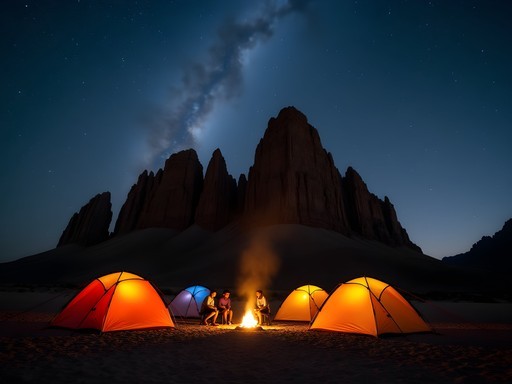
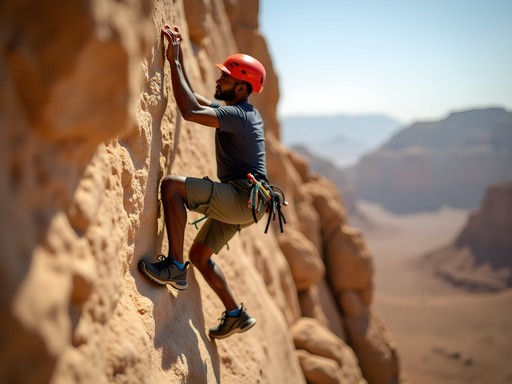
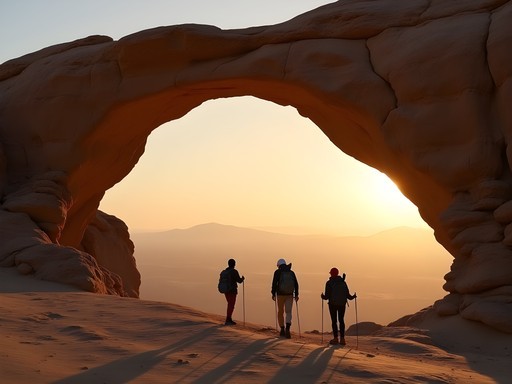
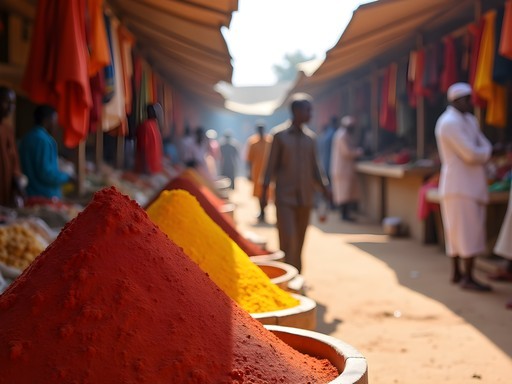


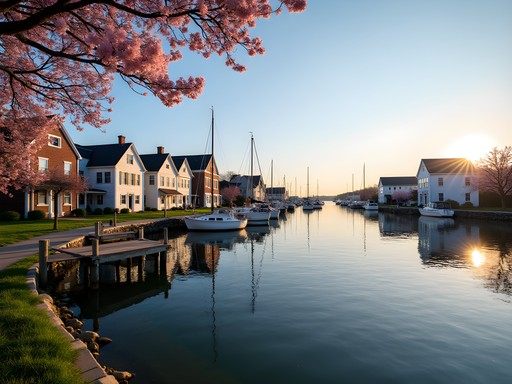
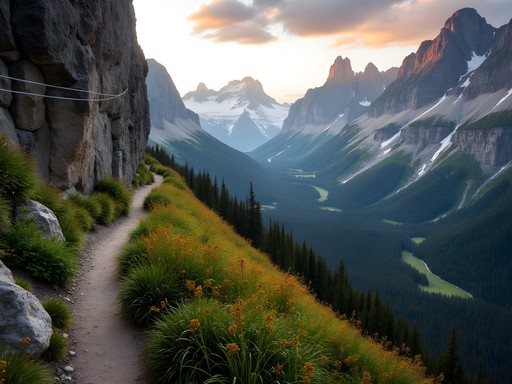
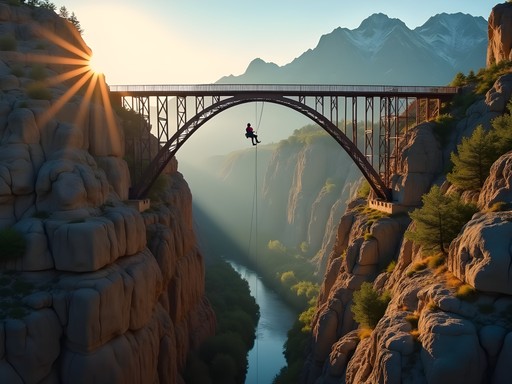
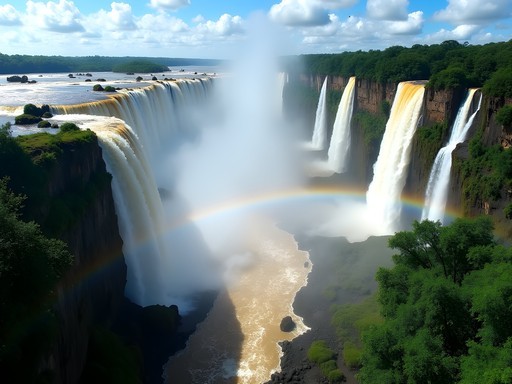
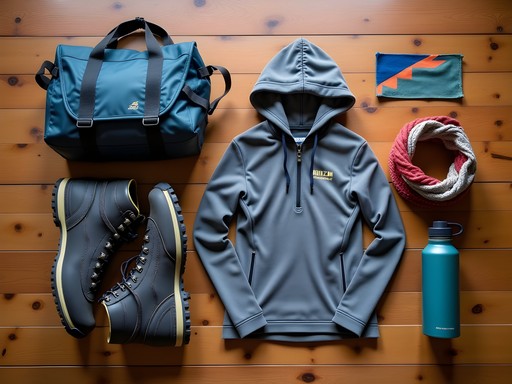
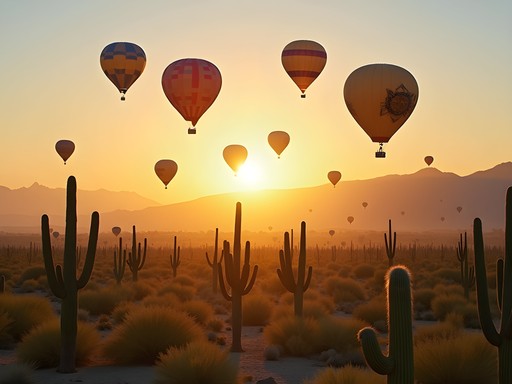
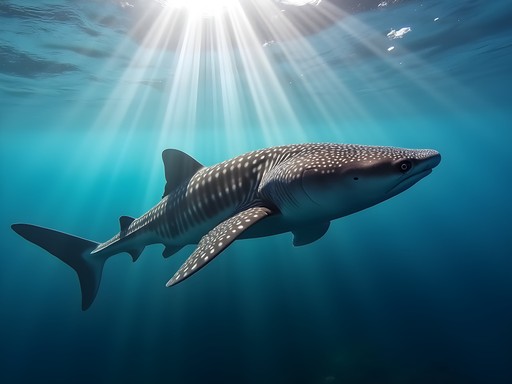
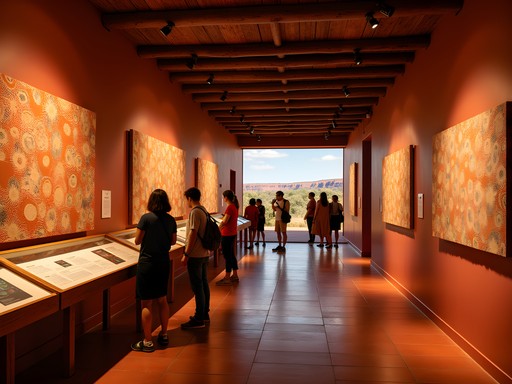
Comments
bluezone
Thanks for putting Sudan on my radar! I've been looking for somewhere different for next year's climbing trip. Did you find the visa process difficult? I've heard mixed things about getting into Sudan as a tourist these days.
Fatima Sims
Not Nicole but I can chime in - visa process has gotten much easier in the past couple years. I got mine through the embassy in Cairo with minimal hassle. Just make sure you have all your documentation organized.
redwanderer
That sunset photo is absolutely stunning
Fatima Sims
What an incredible adventure, Nicole! Sudan is so underrated for adventure travel. I spent three weeks there in 2024 doing a Nile expedition and fell in love with the country. The hospitality is unmatched. For anyone reading this and considering a trip - don't let the lack of tourist infrastructure scare you off. That's exactly what makes it special. Just go with an open mind and flexible expectations. The Sudanese people will take care of you. Also, learn a few Arabic phrases - it goes a long way!
adventurelegend
Really cool post! Quick question - what's the best time of year to go? I'm not great with extreme heat and wondering if there's a cooler season for this kind of trip.
Nicole Russell
November to February is your sweet spot! I was there in December and temps were manageable. Avoid summer at all costs - it gets brutally hot.
Marco Flores
Nicole, this brought back memories of my own off-the-beaten-path climbing in Ethiopia last year. There's something special about these East African granite formations that you just don't get in more commercialized spots. The rawness, the local communities who've never seen climbers before... Did you find the rock quality consistent? In Ethiopia we had some sketchy sections with loose rock that made route-finding tricky. Your photos suggest the Taka granite is pretty solid though.
Nicole Russell
Marco! Yes, the granite was surprisingly solid on the routes we did. Some of the faces had weathering but overall really trustworthy. How was Ethiopia? I've been eyeing the Simien Mountains...
islandmood9522
This is AMAZING!!! I've never even considered Sudan for climbing. How hard was it to get permits and everything? Did you need a guide or could you just show up and climb?? This is going on my bucket list immediately!!!
Nicole Russell
You definitely need to arrange things in advance! I worked with a local operator in Kassala who sorted permits and guides. The climbing community there is small but super welcoming. Happy to share contacts if you're serious about going!
islandmood9522
Yes please!! DMing you now
moonqueen
Wow those granite formations look insane!
hikingfan6934
This looks amazing! I'm more of a hiker than a climber though. Are there good trails for someone who doesn't want to do technical climbing? And how hot was it when you went?
Nicole Russell
Absolutely! There are plenty of hiking trails with varying difficulty levels. The path to Jebel Totil offers stunning views without technical climbing. Regarding temperature, I went in December when days were warm (25-30°C) but comfortable, while nights cooled down significantly. I'd avoid summer months (May-September) when temperatures can soar above 40°C.
hikingfan6934
Perfect, thanks! Winter trip it is then!
Taylor Moreau
Nicole, brilliant piece on a truly underappreciated destination. I visited Kassala briefly during a business trip to Sudan last year but didn't have time for proper climbing. The Taka Mountains are indeed spectacular - I've been telling colleagues they're Africa's answer to Yosemite's El Capitan, just without the crowds! I found the local tea houses near the market excellent for connecting with locals who know the mountains intimately. For anyone planning a visit, I'd recommend bringing all climbing gear as options to purchase locally are quite limited. Also worth noting that mobile coverage is spotty at best once you're on the mountains, so a satellite messenger proved invaluable for our team's safety protocols.
Nicole Russell
Thanks Taylor! You're absolutely right about the Yosemite comparison - that's exactly what struck me too. Great point about the tea houses, they were some of my favorite moments between climbs. And yes, bringing all your gear is essential advice.
roamlover
Those granite formations look insane! Definitely adding this to my climbing bucket list.
Venture X
Premium card with 2X miles, $300 travel credit, Priority Pass